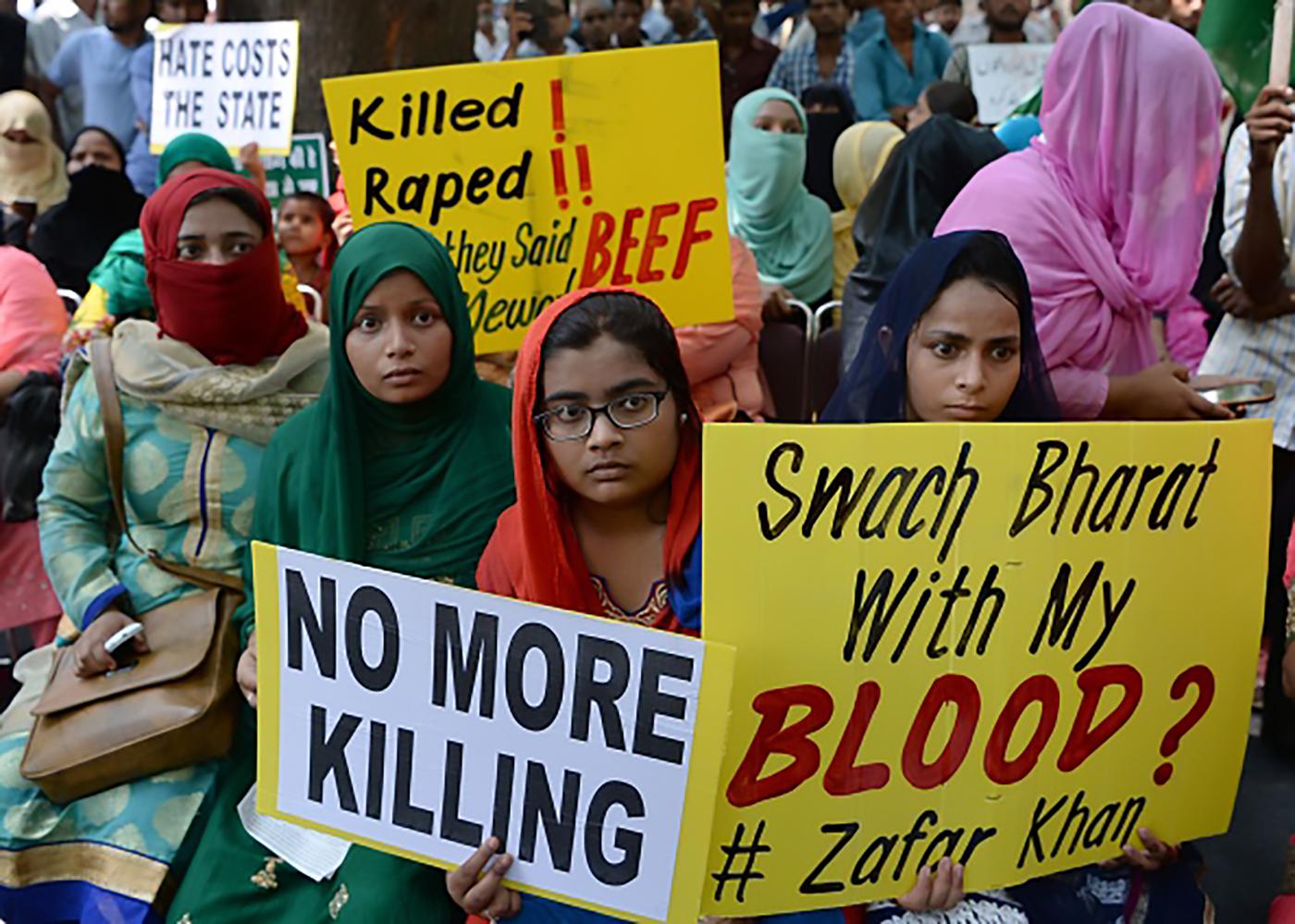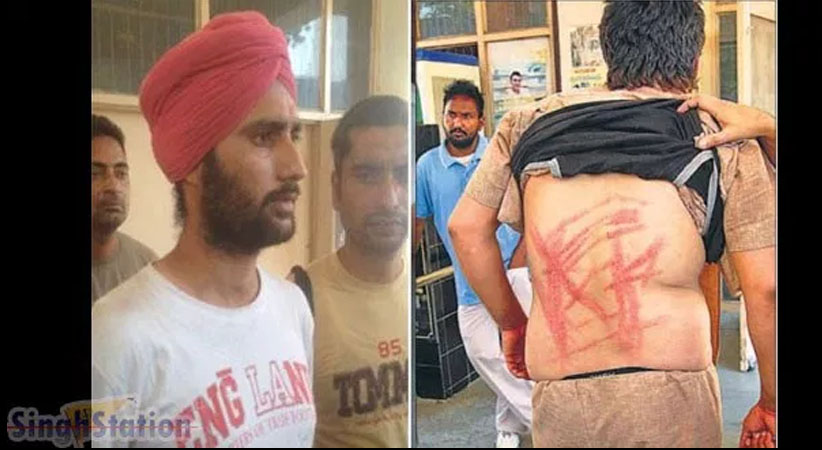NEWS & MEDIA
NEWS & MEDIA
INDIA | Government | 2018-01-18India: Unchecked Attacks on Religious Minorities

Reform Laws Choking Freedom of Expression, Association
Indian demonstrators hold placards as they take part in a rally in New Delhi on July 18, 2017, in protest over a spate of assaults against Muslims and low-caste Dalits by Hindu vigilantes in India.
(New York, January 18, 2018) – The Indian government failed to stop or credibly investigate vigilante attacks against minority religious communities during 2017, Human Rights Watch said today, releasing its World Report 2018. Many senior leaders of the ruling Bharatiya Janata Party (BJP) publicly promoted Hindu supremacy and ultra-nationalism at the expense of fundamental rights for all Indians.
Extremist Hindu groups, many claiming to be affiliated with the ruling BJP, committed numerous assaults against Muslims and other minority communities in response to rumors that minority group members sold, bought, or killed cows for beef. Instead of taking prompt legal action against the attackers, police frequently filed complaints against the victims under laws banning cow slaughter. There were at least 38 such attacks in 2017, and 10 people were killed.
“Indian authorities have proven themselves unwilling to protect minority religious communities and other vulnerable groups from frequent attack,” said Meenakshi Ganguly, South Asia director at Human Rights Watch. “There needs to be a serious effort to prevent future attacks and to prosecute all those responsible for the violence.”
In the 643-page World Report, its 28th edition, Human Rights Watch reviews human rights practices in more than 90 countries. In his introductory essay, Executive Director Kenneth Roth writes that political leaders willing to stand up for human rights principles showed that it is possible to limit authoritarian populist agendas. When combined with mobilized publics and effective multilateral actors, these leaders demonstrated that the rise of anti-rights governments is not inevitable.
In August, India’s Supreme Court declared the right to individual privacy “intrinsic” and fundamental under the country’s constitution, and emphasized the constitution’s protections, including free speech, rule of law, and “guarantees against authoritarian behavior.”
However, Indian authorities also harassed and brought charges, including for sedition and criminal defamation, against activists, academics, journalists, and others critical of government actions or policies. Threats of legal action and arbitrary corruption investigations put increasing pressure on journalists and media outlets to self-censor.
State governments resorted to blanket internet shutdowns in misguided attempts to prevent violence or social unrest, or to maintain law and order. By November, they had imposed 60 internet shutdowns, 27 of these in Jammu and Kashmir state.
The government also used the Foreign Contribution Regulation Act (FCRA), which governs access to foreign funding for nongovernmental organizations, to cut off funds and harass activists and human rights defenders.
Nearly five years after the government amended laws against sexual violence, girls and women still faced barriers to reporting such crimes, including humiliation at police stations and hospitals; lack of protection; and degrading “two-finger tests” by medical professionals to make characterizations about whether the victim was “habituated to sex.”
As in previous years, India passed up chances to demonstrate leadership on human rights issues at international forums such as the United Nations Human Rights Council and General Assembly.
HRW : Human Rights Watch
Link to Source: https://www.hrw.org/news/2018/01/18/india-unchecked-attacks-religious-minorities






